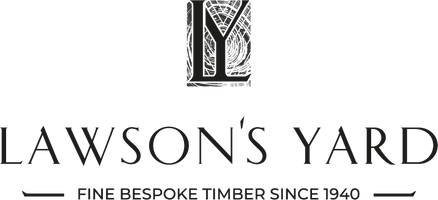The Truth About Flooring Guarantees
When shopping for engineered wood floors, you’ll often see “25-year guarantees” or even “lifetime warranties.” They sound reassuring but in reality, these guarantees come with long lists of conditions and exclusions.
Why Guarantees Rarely Help
Most warranties exclude the very things that matter in day-to-day life. Also, proof of the small print being followed to the exact letter to enable a claim is virtually impossible to provide. They will never cover problems caused by poor fitting, scratches, water ingress, incorrect cleaning, all the things that often cause issues. A floor will only ever fail if correct procedures are not followed, which in turn will automatically void a warranty. An engineered floor has no complicated moving parts. If the boards de-laminate, it’s probably an issue with water getting into the floor. This will void a warranty. If the surface cracks, underfloor heating will be running too hot and or too much variation in humidity. This too will void the warranty. If the protective surface fails early, be it either oil or lacquer, this suggests incorrect cleaning products being used and or incorrect maintenance. Warranty void. To prove liability is unrealistic.
To counteract this our approach is to only use the highest quality raw materials consequently reducing the chances of the floor failing even when maintenance guidelines are not followed to the letter.
An engineered floor is made from four parts:
1. The wear layer – the real wood surface you see and walk on.
2. The plywood base – the strong backing that gives stability.
3. The glue – what bonds the oak layer to the base.
4. The finish – the protective coating on top.
At Lawson’s Yard, we build floors differently: using the best available materials and methods so the quality is inherent in the product itself.
- Plywood base – 15 mm FSC-certified birch plywood, EN314-2 Class 3 - highest moisture resistance available thus reducing the chances of de-lamination should the floor pick up moisture.
- Wear layer – ours is always minimum 6mm thick.
- Bonding adhesive – gap-filling, water-resistant glue for long-term stability – no gaps between plywood base plus wear layer so reducing the chance of moisture ingress.
- Protective finish – professional products such as Bona, Morrells, or Fiddes Hard Wax Oil – global leaders in wood floor finishes.
- Established supply chain – large UK and international manufacturers - batch numbers available to check through other reported issues.
- Proven construction methods – every board is worked on individually through every process so more checks throughout production.
All the above high-quality materials will help prevent issues arising in the first place.
The Difference from Mass-Produced Flooring
- Mass-produced boards often use thin wear layers, low-grade plywood, and cheaper adhesives – prone to de-lamination at any sign of dampness.
- Finishes may be own-brand or budget coatings rather than recognised professional systems – surface damage more likely.
- Long guarantees are used to offset these compromises — lots of small print making claims almost impossible.
- Less quality checks throughout manufacturing – less chance of issues being spotted at source.
Real peace of mind
Our reputation comes from floors that perform beautifully year after year. We don’t rely on marketing promises or complicated guarantees. A wooden floor is a natural product, and its long life ultimately depends on the care and maintenance it receives in your home.
The reality is, even with the very best materials, a wooden floor will only last if it’s cared for properly. No guarantee can replace regular maintenance.
Our advice is to avoid any problems that may arise in the future only buy a floor made from proven high quality materials.
We give you the best possible starting point. From there, the rest is in your hands.
“Peace of mind doesn’t come from paperwork — it comes from the quality of your floor.”
Questions You Should Ask Any Flooring Supplier
Before choosing a floor, here are some helpful questions worth asking:
- What thickness is the wear layer?
- What type of plywood is used? (Is it stable and moisture-resistant?)
- What glue bonds the oak to the base? (Is it chemical and water-resistant?)
- Which finishes do you use? (Are they trusted, professional products?)
- Where do you source your materials from? (Are suppliers established and reliable?)
- How long have you been trading (how much industry experience do you have?)
All suppliers should be able to answer these questions easily.

